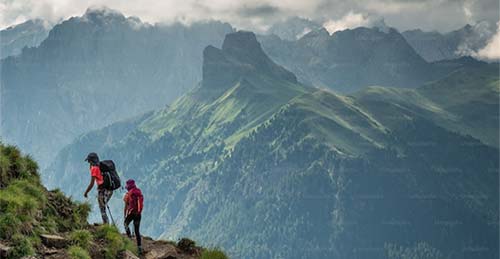Preparation is key to enjoying your trekking holiday, this page will give you an insight into some of the best ways to prepare based on your current level of fitness. As a starting point answer the questionnaire below so you can plan your next steps.
Preparing for your Trekking Holiday
In simple terms your trekking holiday is a rewarding and challenging journey made up of a series of day walks in high mountains where each day has a destination to achieve. Physical and mental benefits of trekking holidays are well documented but there may also be times when your mind and body are challenged. To get the most from your trekking experience take time to reflect on where you are now and what you might need to complete your journey, then choose your trek that matches your experience and personal goals.
Consider the trek you have booked on, make sure you are aware of the daily distances you will travel and the height gain and descent so that you know what to expect. A mountain day can be seven hours, maybe more or less. Terrain and temperature can vary. Practice hill walking so that you are used to ascent and descent and take a rucksack out with you each time you go out on a hike. See our kit list page for more detailed information on what you will need to take on your trekking holiday.













